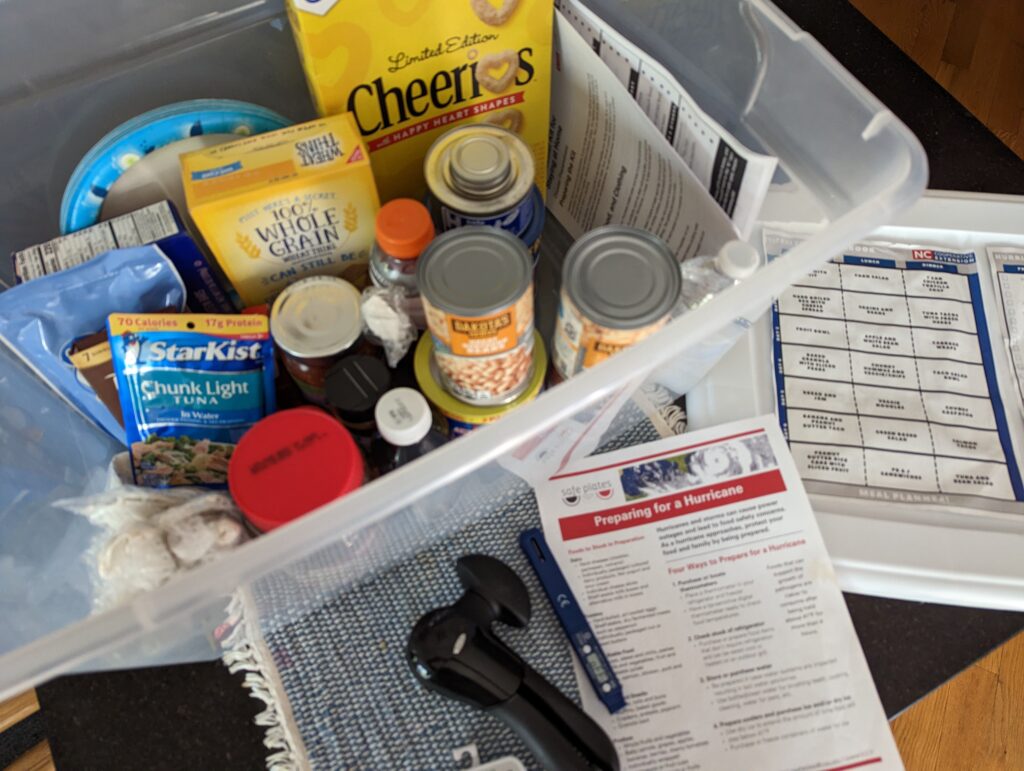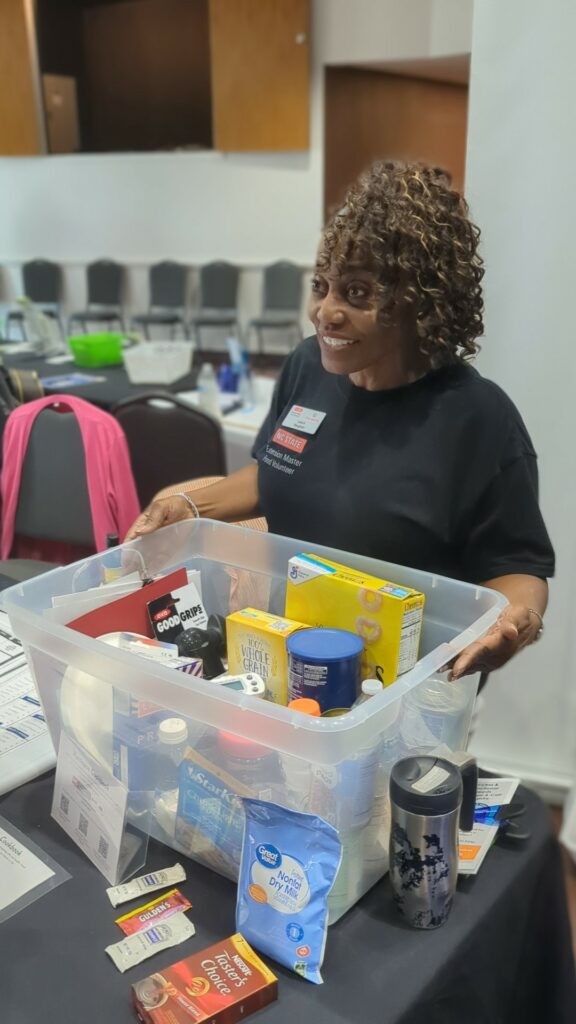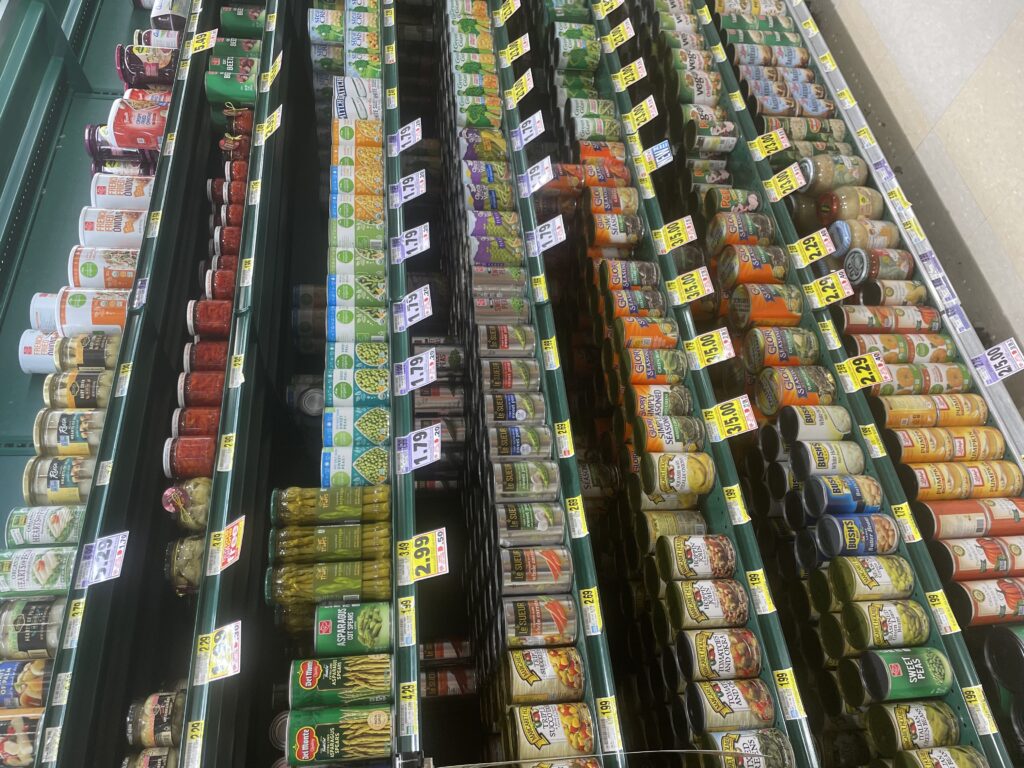While Preparing for a Hurricane, Don’t Forget Food Safety
go.ncsu.edu/readext?942991
en Español / em Português
El inglés es el idioma de control de esta página. En la medida en que haya algún conflicto entre la traducción al inglés y la traducción, el inglés prevalece.
Al hacer clic en el enlace de traducción se activa un servicio de traducción gratuito para convertir la página al español. Al igual que con cualquier traducción por Internet, la conversión no es sensible al contexto y puede que no traduzca el texto en su significado original. NC State Extension no garantiza la exactitud del texto traducido. Por favor, tenga en cuenta que algunas aplicaciones y/o servicios pueden no funcionar como se espera cuando se traducen.
Português
Inglês é o idioma de controle desta página. Na medida que haja algum conflito entre o texto original em Inglês e a tradução, o Inglês prevalece.
Ao clicar no link de tradução, um serviço gratuito de tradução será ativado para converter a página para o Português. Como em qualquer tradução pela internet, a conversão não é sensivel ao contexto e pode não ocorrer a tradução para o significado orginal. O serviço de Extensão da Carolina do Norte (NC State Extension) não garante a exatidão do texto traduzido. Por favor, observe que algumas funções ou serviços podem não funcionar como esperado após a tradução.
English
English is the controlling language of this page. To the extent there is any conflict between the English text and the translation, English controls.
Clicking on the translation link activates a free translation service to convert the page to Spanish. As with any Internet translation, the conversion is not context-sensitive and may not translate the text to its original meaning. NC State Extension does not guarantee the accuracy of the translated text. Please note that some applications and/or services may not function as expected when translated.
Collapse ▲
Do you have a hurricane kit? Click this image for more information about what to include in your hurricane kit
Going into my fourth hurricane season in Wilmington, I have started to pay closer attention to what can be done to prepare for the worst. Creating healthy and fulfilling meals during a stressful event, such as a hurricane, can be challenging. Hurricane season in North Carolina takes place from June 1-November 30. Preparing for natural disasters such as hurricanes is essential because you never know how long you could be without things such as food, water, electricity, and transportation. Before hurricane season picks up, it is advised that you stock your pantry with two weeks of nonperishable goods such as canned fruits, vegetables, meat, fish, beans. Other shelf-stable items include snacks, whole grains, nut butters, and non-perishable milk of choice. You’ll also want three days’ worth of water in your household, at least one gallon per day per person (and pet). .

Your local Extension office and Master Food Volunteers can help connect you to resources so you can be more prepared. Courtesy of Cheryle Syracuse
The breakfast I often enjoy is oatmeal or chia seed pudding topped with nuts, fruits, and milk. This meal can easily be composed of shelf-stable whole grains, nuts, and seeds that provide the body with energy and protein. Lunches that could be enjoyed when low on accessible resources could be sandwiches, wraps, or salads. Dinners could include lentil or bean tacos, curry, or bean and rice burritos or bowls. All these options can be tailored to individuals’ liking and available resources. The focus is that your meal should be composed of lots of vegetables and fruits, half of your grains should be whole, and your protein sources should vary. I also like to limit my intake of empty calories from products such as solid fats and added sugars which provide you with little source of energy and nutrition.

Canned goods are a great item to have on hand. Courtesy of Rhianna Flory
Knowledge surrounding food safety is also critical to hurricane preparedness. I always keep in mind that it is important to keep food in covered containers. All uneaten portions of prepared foods should be disposed of within two hours to prevent the spread of foodborne illnesses. Also, it is important to note that canned foods that are damaged, such as swollen, dented, or corroded cans, are not food safe. Throw away foods that have any molding or other signs of spoilage. Lastly, when under a hurricane warning, keep the fridge and freezer set to the coldest settings to extend the longevity of refrigerated and frozen items in the event of a power outage.
I will be reminding myself of all these tips as we enter hurricane season this year. If you need help deciding what goes in your hurricane kit, visit this website
Rhianna Flory is an intern at The N.C. Cooperative Extension Center for New Hanover County which is located at the Arboretum, 6206 Oleander Drive. The gardens are free and open daily 8 a.m. – 5 p.m. Reach her at rhiannaflory@gmail.com or 910-798-7660.




